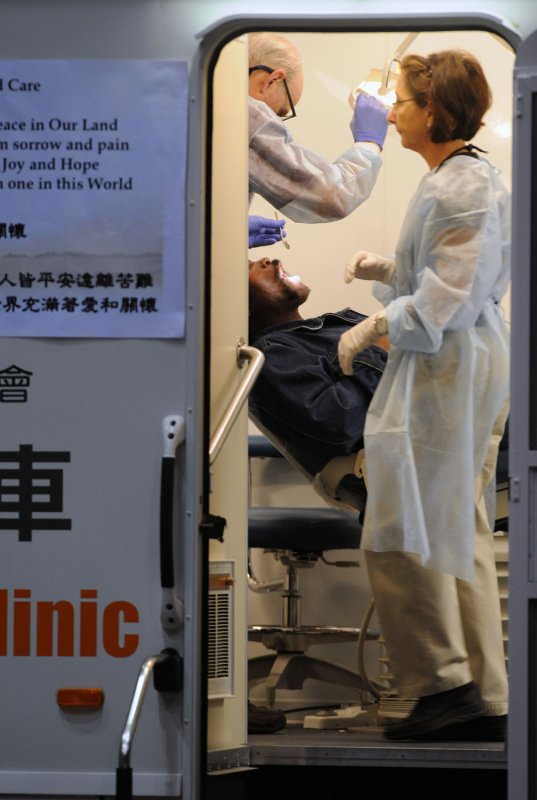Counseling during HIV testing not effective in preventing STIs. UPI/Jim Ruymen. |
License Photo
NEW YORK, Oct. 24 (UPI) -- Brief counseling on how to prevent HIV at the time of a rapid HIV test was not effective for reducing new sexually transmitted infections, U.S. researchers say.
Lisa R. Metsch of Columbia University's Mailman School of Public Health in New York and colleagues conducted a trial to assess the effectiveness of counseling in reducing STI incidence in nine STI clinics affiliated with the NIDA Drug Abuse Treatment Clinical Trials Network.
From April to December 2010, Project AWARE randomized 5,012 patients from the nine clinics to receive either brief patient-centered HIV risk-reduction counseling with a rapid HIV test or the rapid HIV test with information only.
Participants were assessed for multiple STIs at both the beginning of the study and six-month follow-up. The core elements of the counseling that the patients received included a focus on the patient's specific HIV/STI risk behavior and negotiation of realistic and achievable risk-reduction steps.
All participants were tested for Neisseria gonorrhoeae, Chlamydia trachomatis, Treponema pallidum or syphilis, herpes simplex virus 2 and HIV. Women were also tested for Trichomonas vaginalis.
The study, published in the Journal of the American Medical Association, found no difference in six-month composite STI incidence by study group: STI incidence was 12.3 percent in the counseling group and 11.1 percent in the information group. This pattern was consistent at all sites. Analyses by age group, race/ethnicity, and sex for heterosexuals also demonstrated no effect of counseling on STI rates, the study said.
"Despite the historical emphasis on risk-reduction counseling as integral to the HIV testing process, no contemporary data exist on the effectiveness of such counseling," Metsch said in a statement.
"Overall, these study findings lend support for reconsidering the role of counseling as an essential adjunct to HIV testing. This inference is further buttressed by the additional costs associated with counseling at the time of testing: without evidence of effectiveness, counseling cannot be considered an efficient use of resources."















